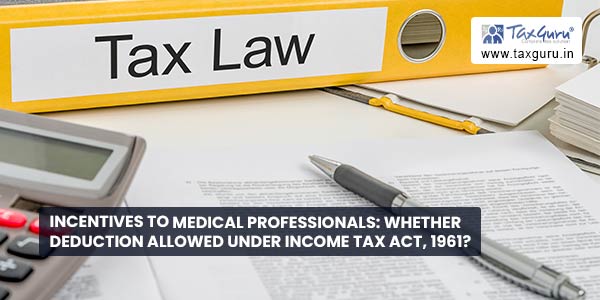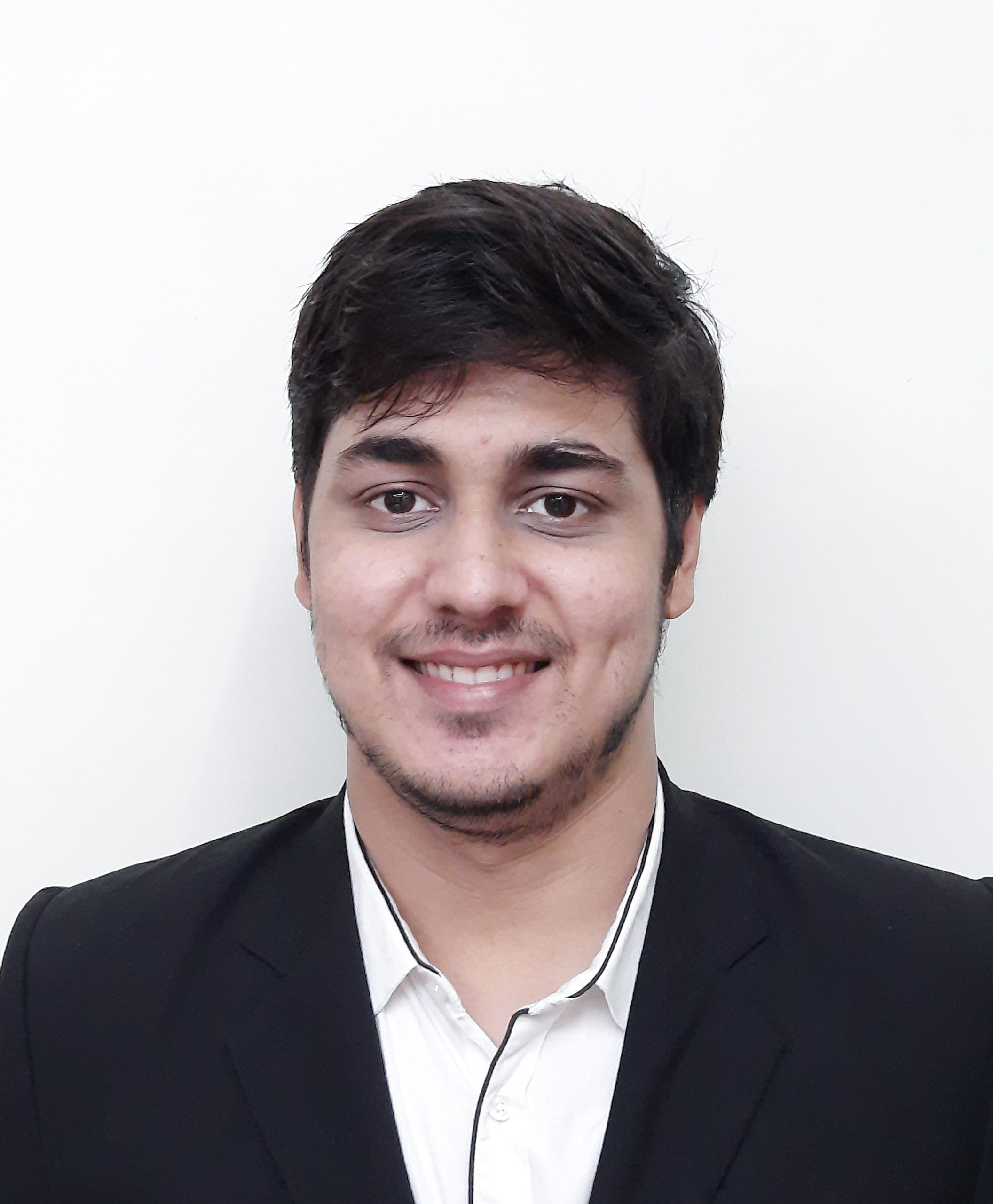In general practice freebies although being prohibited are provided to medical professionals by pharmaceutical companies and diagnostic centers to induce them to prescribe their medicines and tests which are higher in price than their generic alternatives. This practice of acceptance of freebies was disallowed through a circular issued on 14.12.2009 by the Medical Council of India under Regulation 6.8. of the Indian Medical Council (Professional Conduct, Etiquette and Ethics) Regulation, 2002 (for brevity hereinafter referred to as “the regulation”). This regulation also includes a penal provision against contravention of any of the regulations. The penal provision is upon the medical professional being the donee but not upon the donor i.e. the pharmaceutical companies. The Central Board of Direct Taxes (for brevity hereinafter referred to as “CBDT”) released a Circular bearing Circular No. 05/2012 dated 01.08.2012 w.e.f. 14.12.2009(from the date of MCI Circular) wherein expenditures incurred against gifting such freebies were disallowed for deduction under Section 37 of the Income Tax Act, 1961(for brevity hereinafter referred to as “the Act”).
This raised various concerns among the assessees on whether freebies provided before the circular date i.e. 01.08.2012 is deductible under section 37 of the Income Tax Act, 1961. And whether such retrospective effect is valid in the eyes of law?
This issue is now settled by a recent judgement dated 22.02.2022 by the Division Bench of Hon’ble Supreme Court presided over by Justice Uday Umesh Lalit and Justice S. Ravindra Bhat in Apex Laboratories (P.) Ltd. v. Deputy Commissioner of Income Tax LTU, Civil Appeal No. 1554 of 2022; [2022] 135 taxmann.co 286 (SC), wherein the appellant i.e. Apex Laboratories (P.) Ltd. challenged the Judgment of Hon’ble Madras High Court. Hon’ble Supreme Court upheld the rationale of Hon’ble High Court and dismissed the Civil Appeal bearing Civil Appeal No. 1554 of 2022. Before diving directly into the observation of the Hon’ble Supreme Court, let us first look at the ingredients of Section 37 of the Income Tax Act, 1961.
Section 37 of the Income Tax Act, 1961, is a residuary provision, wherein, if a business or professional expenditure does not ordinarily fall under Section 30-36 of Income Tax Act, 1961, then upon fulfilment of the enumerated pre-requisites, a person can claim deduction under Section 37 of the Act. The following pre-requisites must be met out so that a particular expenditure may be allowed for deduction under this section:
(i) The expenditure should not be of the nature described in Sections 30 to 36.
(ii) It should have been incurred in the accounting year.
(iii) It should be in respect of a business which was carried on by the assessee and the profits of which are to be computed and assessed, and should be incurred after the business is set up.
(iv) It should not be in the nature of personal expenses of the assessee.
(v) It should have been laid out or expended wholly and exclusively for the purpose of such business.
(vi) It should not be in the nature of capital expenditure.[1]
(vii) Explanation 1- Such expenditure should not be incurred for a purpose that is either an offence or prohibited by law.
Thus, the crux of the current issue is whether such gifting of freebies falls within explanation 1 appended to Section 37 of the Income Tax Act, 1961.
The brief facts of the Apex case are as follows: the appellant being the assessee incurred expenditure towards provisioning of freebies to medical practitioners for promoting its health supplement and claimed deductions for the same under Section 37 of the Act. But the Assessing Officer (AO) relying upon Circular No. 05/2021 by CBDT dated 01.08.2012 read with circular dated 14.12.2009 by MCI observed that expenses only till 14.12.2009 (i.e. the date of MCI circular) are eligible for deduction and further expenditures would be disallowed for a deduction. Assessing Officer issued a notice u/s 142(1) of the Act to the Assessee to explain as to why the expenditure of Rs. 4,72,91,159/- incurred towards gifting freebies to medical practitioners should not be added back to the total income of the assessee company. On subsequent appeals CIT(A), ITAT and Hon’ble Madras High Court upheld the order of AO. This led to this Appeal before the Hon’ble Supreme Court.
The contentions of the Appellant/Assessee:
The counsel on behalf of the assessee contended that the Circulars by CBDT and MCI prohibited the medical practitioners from taking any incentives from pharmaceutical companies but no corresponding prohibition has been imposed upon the pharmaceutical companies. In absence of such prohibition, such expenditures against provisioning of freebies are liable to be allowed for deduction under Section 37 of the Act.
Moreover, it was also contended that the object of the Finance (No. 2) Bill, 1998 through which Explanation 1 was inserted to Section 37 of the Act was to prohibit taxpayers from claiming “protection money, extortion, hafta, bribes, etc.” as business expenditure i.e. it was added to prohibit only expenditures against illegal acts which are offences per se. Since gifting of freebies are not illegal or an offence and therefore these activities are not hit by the Explanation appended to Section 37 of the Act.
It was also contended that any circular favoring the assessee can be made with the retrospective effect but circulars being not favorable to the assessee can only be prospectively put into effect.
The contentions of the Revenue Authorities:
The learned ASG appearing on behalf of the revenue authorities contended that although such act of gifting of freebies doesn’t fall within the meaning of offence but falls under “prohibited by law” because the act of receiving incentives was prohibited by the 2002 amendment to the Regulations. Thus, under explanation 1 of Section 37 of the Act, the appellant should not be allowed for deduction. The learned ASG placed reliance on two High Court decisions, firstly, on CIT v. Kap Scan & Diagnostic Centre Pvt. Ltd. [2012] taxmann.com 32/344 ITR 476 (Panj. & Har.) wherein a division bench of Hon’ble Punjab and Haryana High Court disallowed deductions to the assessee’s diagnostic center against gifting of incentives to medical professions. Hon’ble High Court further observed that:
“It, thus, emerges that an assessee would not be entitled to a deduction of payment made in contravention of the law. Similarly, payments that are opposed to the public policy being in the nature of unlawful consideration cannot equally be recognized. It cannot be held that businessmen are entitled to conduct their business even contrary to law and claim deductions of payments as business expenditure, notwithstanding that such payments are illegal or opposed to public policy or have pernicious consequences to the society as a whole.”
“If demanding of such commission was bad, paying it was equally bad. Both were privies to a wrong. Therefore, such commission paid to private doctors was opposed to public policy and should be discouraged. The payment of commission by the assessee for referring patients to it cannot by any stretch of imagination be accepted to be legal or as per public policy. Undoubtedly, it is not a fair practice and has to be termed as against the public policy.”
And secondly upon the judgment of the division bench of Hon’ble Himachal Pradesh High Court in Confederation of Indian Pharmaceutical Industry (SSI) v. CBDT [2014] 44 taxmann.com 365/ [2013] 353 ITR 388 decided on similar lines in favour of the revenue authorities and observed:
“This regulation is a very salutary regulation which is in the interest of the patients and the public. This court is not oblivious to the increasing complaints that the medical practitioners do not prescribe generic medicines and prescribe branded medicines only in lieu of the gifts and other freebies granted to them by some particular pharmaceutical industries. Once this has been prohibited by the Medical Council under the powers vested in it, section 37(1) of the Income-tax Act comes into play”.
It is also important to note here that both the High Courts upheld the legality of the CBDT’s Circular dated 01.08.2012 with an observation that the assessee is under an obligation to show that such expenditure is not violating the Regulations.
Observations by Hon’ble Supreme Court:
Firstly, while referring to Section 37 of the Act, Hon’ble Supreme Court observed that even though there is no definition of “offence” provided under the Act but General Clauses Act, 1897 defines ‘offence’ as “any act or omission made punishable by any law for the time being in force”. Moreover, Section 40 read with Section 43 of IPC defines ‘illegal’ as “everything which is an offence or which is prohibited by law, or which furnishes ground for a civil action”. It is therefore clear that Explanation 1 contains within its ambit all such activities which are illegal/prohibited by law and/or punishable.

Moreover, Hon’ble Supreme Court while perusing the judgment in Dy. CIT v. PHL Pharma (P.) Ltd. 78 taxmann.com 36/163 ITD 10 (Mum) disagreed with the reasoning of the ITAT i.e. that since the 2002 Regulations are only applicable upon the medical professionals and not upon the pharmaceutical companies, therefore, the pharmaceutical companies cannot be said to have violated the regulations and also there are no enabling provisions to allow CBDT to bring pharmaceutical companies within the ambit of 2002 Regulations. On this Hon’ble Supreme Court observed that such a narrow observation to Explanation 1 of Section 37 of the Act would defeat the object with which it was inserted i.e. to disallow an assessee of tax benefit out of any illegal activity. It was also observed by the Hon’ble Supreme Court that the act of gifting of freebies results in commissioning of an illegal act under 2002 Regulations therefore, allowing a deduction under section 37 of the act would defeat the public policy behind such amendment. Thus, even for the sake of argument, if one assumes that it is not an offence even then it would fall within the purview of “prohibited by law” as it is a settled principle of law that no court will lend its aid to a party that roots its cause of action in an immoral or illegal act (ex dolo malo non oritur action) meaning that none should be allowed to profit from any wrongdoing.
Therefore, Hon’ble Supreme Court dismissed the Appeal and settled the uncertainty once and for all that the expenditure incurred against gifting of freebies as incentives to the medical professionals would be disallowed for deductions under Section 37 of the Act read with the Indian Medical Council (Professional Conduct, Etiquette and Ethics) Regulation, 2002 and the Circular bearing Circular No. 05/2021 by CBDT dated 01.08.2012 passed by CBDT.
[1] Kanga and Palkhivala, Income Tax Act, 10th Edition, LexisNexis.





